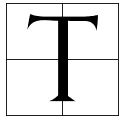 he age-old question of whether extraterrestrial life exists beyond our planet has been a topic of fascination and speculation for centuries. While scientific endeavors and space exploration have brought us closer to understanding the cosmos, the question of whether aliens exist remains unanswered. In recent years, self-proclaimed UFO experts and enthusiasts have made bold claims about the existence of aliens, but what does this mean for humanity? This article explores the implications of such claims and their impact on science, society, and the quest for extraterrestrial life.
he age-old question of whether extraterrestrial life exists beyond our planet has been a topic of fascination and speculation for centuries. While scientific endeavors and space exploration have brought us closer to understanding the cosmos, the question of whether aliens exist remains unanswered. In recent years, self-proclaimed UFO experts and enthusiasts have made bold claims about the existence of aliens, but what does this mean for humanity? This article explores the implications of such claims and their impact on science, society, and the quest for extraterrestrial life.
I. The UFO Enigma: Recent Claims and the Mexico Congress Incident
Recent years have seen a surge in claims regarding UFO sightings and encounters with alleged aliens. These claims have gained substantial media attention, with some self-proclaimed UFO experts going so far as to present their evidence to government bodies.
One notable incident that garnered attention occurred when a self-proclaimed UFO expert presented alleged evidence of aliens to Mexico’s Congress. This presentation, as reported by The Washington Post, included photographs and testimonies that were intended to prove the existence of extraterrestrial beings. While such claims may capture the public’s imagination, they also raise questions about the credibility of the evidence presented and the scientific rigor behind it.
Scientific inquiry thrives on skepticism and rigorous examination of evidence. Claims of alien existence must undergo thorough scrutiny to determine their validity. The Mexico Congress incident serves as a reminder that skepticism is essential in evaluating extraordinary claims and that extraordinary evidence is required to substantiate them.
The scientific community has a well-established process for evaluating extraordinary claims. Evidence must be subject to peer review and rigorous testing to ensure its validity. Claims of alien existence must adhere to these standards to be taken seriously within the scientific community.
II. The Potential Impact on Science and Research
Claims of alien existence can impact scientific research and the search for extraterrestrial life in various ways, both positive and negative.
Heightened public interest in claims of alien existence may lead to increased funding for space exploration and astrobiology research. Public fascination with the idea of aliens can serve as a catalyst for governments and institutions to allocate resources to explore the cosmos and search for signs of extraterrestrial life.
While public interest is beneficial, the scientific community must remain vigilant in its pursuit of evidence. False or unverified claims of alien existence can divert resources and attention away from legitimate scientific research. Scientists must prioritize rigorous investigation and skepticism when evaluating such claims.
The quest for evidence of alien life continues to drive scientific exploration. Advances in astrobiology, the discovery of exoplanets in the habitable zone, and missions to places like Mars have brought us closer to potentially finding signs of extraterrestrial life. Legitimate scientific discoveries will play a critical role in answering the age-old question of whether we are alone in the universe.
III. Societal and Cultural Ramifications
Claims of alien existence have far-reaching implications for society and culture, influencing our worldview and beliefs.
The notion that we are not alone in the universe challenges our anthropocentric view of existence. The discovery of alien life, if substantiated, would broaden our perspective and force us to reconsider our place in the cosmos. It could have profound philosophical, religious, and societal implications.
Aliens and UFOs have long been staples of popular culture, shaping our imaginations through books, films, and television. Claims of alien existence can intensify interest in these cultural phenomena, driving creativity and artistic exploration while simultaneously fostering discussions about the potential realities of alien encounters.
As claims of alien existence gain momentum, discussions about how humanity should prepare for potential contact with extraterrestrial beings become more relevant. These conversations encompass not only scientific and diplomatic considerations but also ethical and philosophical aspects.
IV. Balancing Excitement and Skepticism
In the quest to understand the existence of aliens, it is essential to strike a balance between excitement and skepticism.
Media outlets and journalists play a crucial role in responsibly reporting claims of alien existence. Accurate and unbiased reporting ensures that the public receives a balanced view of the evidence and the scientific community’s assessment of its validity.
Claims of alien existence should encourage scientific inquiry and curiosity rather than blind acceptance. Individuals interested in the topic should engage with scientific organizations and researchers to learn more about the ongoing search for extraterrestrial life.
While it is essential to approach claims of alien existence with skepticism, it is equally important to remain open to the possibility of profound discoveries. Humanity stands at the threshold of exploring the cosmos as never before, and our approach should be one of cautious optimism, embracing the unknown with scientific rigor and intellectual curiosity.
Claims of alien existence have captured the public’s imagination for decades, and recent incidents, such as the presentation to Mexico’s Congress, continue to fuel the debate. While these claims are tantalizing and provoke excitement about the prospect of discovering extraterrestrial life, they also underscore the need for scientific rigor and skepticism. The quest for evidence of aliens is a complex and multifaceted endeavor that has the potential to impact science, society, and culture in profound ways. As we navigate this uncharted territory, it is crucial to strike a balance between curiosity and critical inquiry, maintaining a responsible and scientific approach to the exploration of the unknown.
Avid Writer with invaluable knowledge of Humanity!
Upcoming historian with over 30 million views online.
“You make your own life.”





